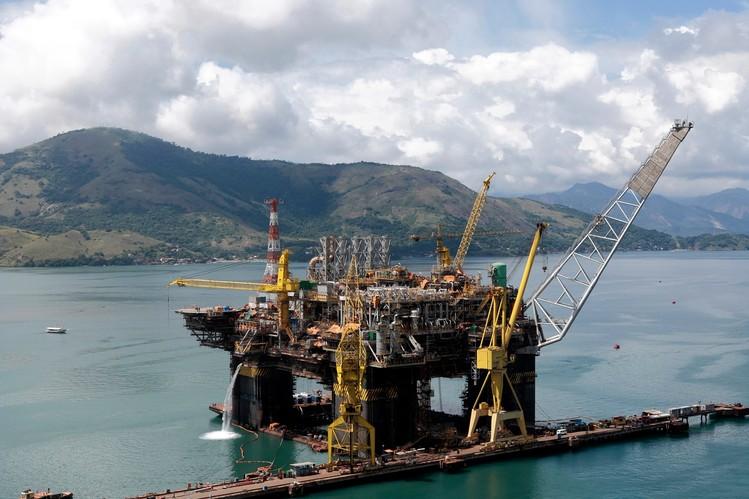
PETROBRAS: MORE CORRUPTION

A corruption investigation that has already engulfed Brazil's state-run oil giant Petroleo Brasileiro SA has spread to the health ministry and state-owned bank Caixa Econômica Federal, authorities said Friday.
The burgeoning scandal has become a political nightmare for President Dilma Rousseff, whose popularity has hit record lows just as she is seeking to pass unpopular economic measures intended to shrink the budget deficit and maintain Brazil's investment-grade credit ratings.
The allegations against the ministry and the lender are similar to both the kickback-and-bribery scheme being investigated at Petrobras, as the oil company is known, and to a previous scandal that erupted under former President Luiz Inácio Lula da Silva. That one resulted in several prominent politicians being sent to jail in 2013.
Investigators allege many of the oil company's suppliers inflated contracts, with some of the extra money divvied up among Petrobras executives and some funneled to dozens of politicians. At the health ministry and Caixa Econômica, the cost of advertising contracts was inflated by as much as 10%, prosecutors said, with the surplus also passed along to politicians.
The health ministry said all its advertising contracts meet the legal requirements for such agreements, and that it will investigate the allegations and cooperate with police and prosecutors.
"We knew the case wasn't going to stay in Petrobras," said Igor Romario de Paula, a top official at the Federal Police. "It seems as if we're facing a business model that is repeated in contracts around Brazil's public sector."
Also Friday, seven people, including three former congressmen, were arrested as part of the Petrobras investigation, known as "Operation Car Wash." The politicians are accused of, among other things, money laundering and involvement with a currency dealer who was arrested earlier in the case.
The timing of the announcement that the investigation had spread to Caixa Econômica, the country's third-biggest bank by assets and by far its biggest mortgage lender, couldn't be worse.
On Wednesday Finance Minister Joaquim Levy and Caixa Chief Executive Officer Miriam Belchior announced plans for an initial public offering in the insurance joint venture the bank has with French insurer CNP Assurances.
Caixa said it would open an internal investigation into the allegations and fully cooperate with police and prosecutors. CNP had no immediate comment.
Luis Santacreu, a banking analyst at local rating agency Austin Ratings in São Paulo, said the allegations against Caixa show it needs to improve its governance, and that the practice of political appointments at its top levels needs to stop.
"As for the insurance IPO they just announced, this kind of news gets in the way because an investigation is a risk to the company's reputation," he said. "I don't think this will stop the IPO, but it makes it more difficult."
Day-to-day operations at the bank, which the government used in recent years as a tool to fuel credit expansion as private sector banks held back on lending, shouldn't be affected by the investigation because it is financially solid and well monitored by the central bank, Mr. Santacreu added.
The spreading investigation is a blow to the reputation of Brazilian companies and could deter foreign investment just as the economy needs it most. Gross domestic product barely grew in 2014 and economists expect a contraction this year as business investment has declined and consumers have cut back on spending.
Increasingly prominent efforts to investigate corruption are nevertheless a good sign for the future, said Celson Placido, chief investment strategist a XP Investimentos.
"I expect investigators will find [similar problems] in other Brazilian companies," he said. "But the tendency is that fraud will become more difficult in Brazil, because authorities and the population can't take this anymore."
wsj.com



